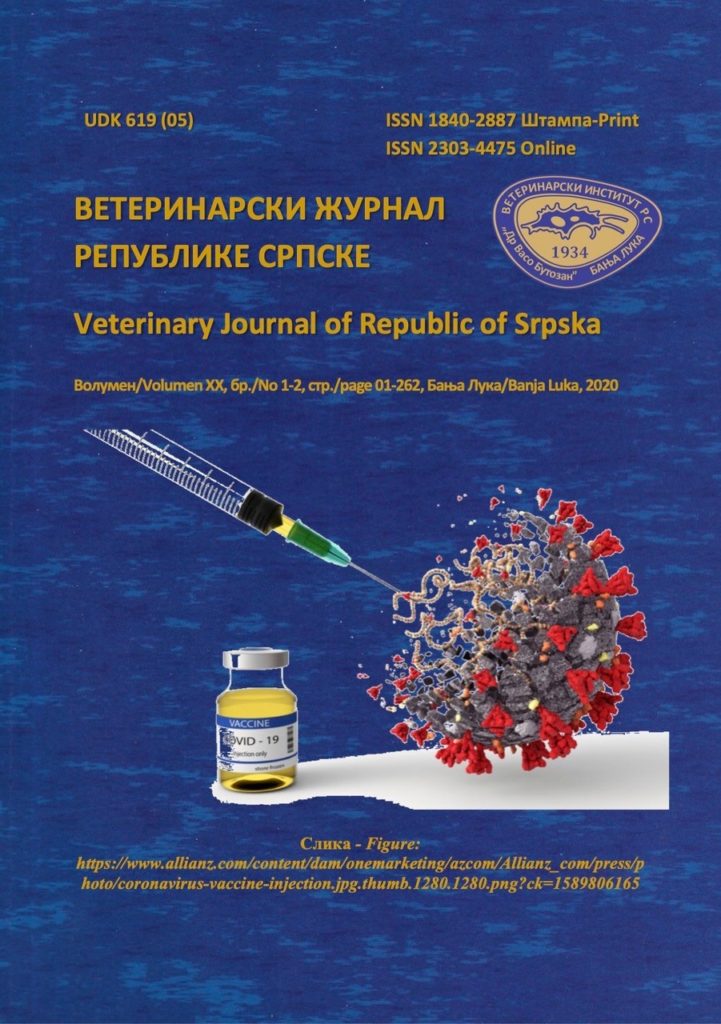HOSPITALITY – OPERATING IN ACCORDANCE WITH THE PRINCIPLES OF GOOD PRACTICE AND HAZARD ANALYSIS AND CRITICAL CONTROL POINTS
DOI:
https://doi.org/10.7251/VETJEN2001036KAbstract
A hospitality sector is an important place when it comes to the occurrence of foodborne diseases in the world. Restaurants within hospitality represent the last line of defense of food before it reaches the consumer. Hospitality facilities are obliged to establish a system for ensuring food safety in accordance with the principles of good manufacturing and hygiene practice and hazard analysis and critical control points (HACCP). However, the specifics of the hospitality sector often represent barriers to the successful implementation of the HACCP system. To a large extent, the successful implementation of the food safety management system can be influenced by the management of hospitality facilities. Proper management of human resources could play the most important role in the prevention of foodborne diseases in the hospitality industry. In addition, it is especially important to carefully consider the entire production process and its specifics, which should result in the application of appropriate control measures that will eliminate potential hazards or reduce them to an acceptable level. Food safety is imperative when it comes to consumer health, but also the effectiveness of the HACCP system will depend on how much a certain entity in the food business has managed to overcome all barriers that carry the specifics of the hospitality business and also motivate its employees.

